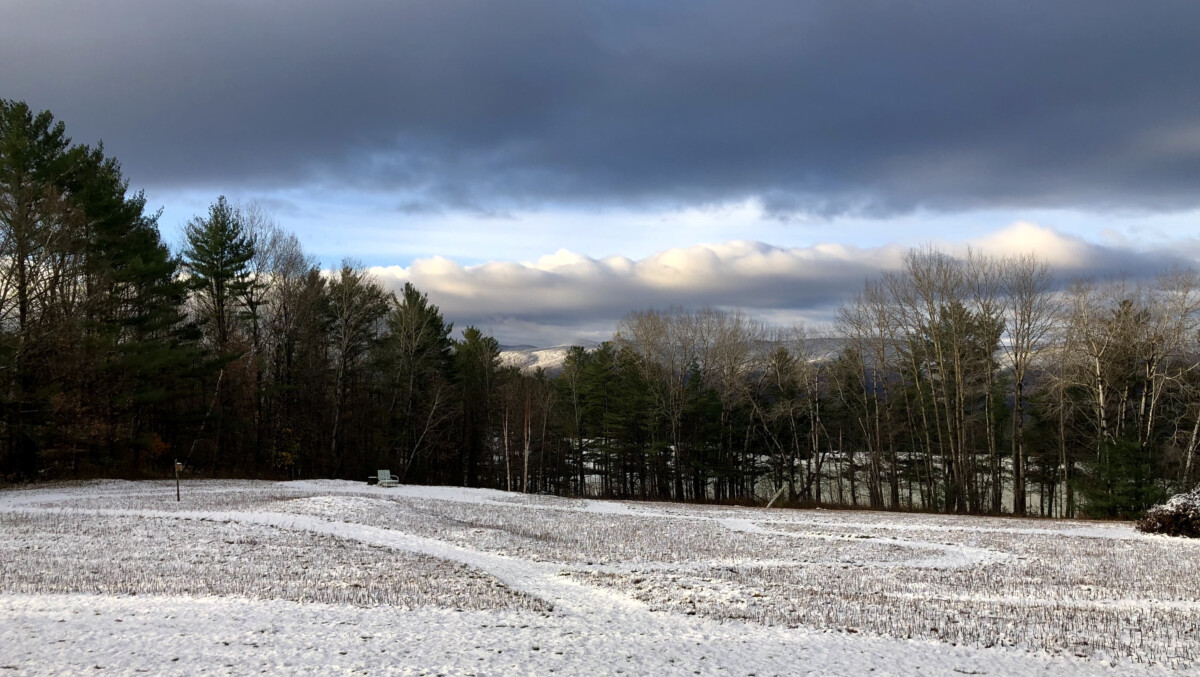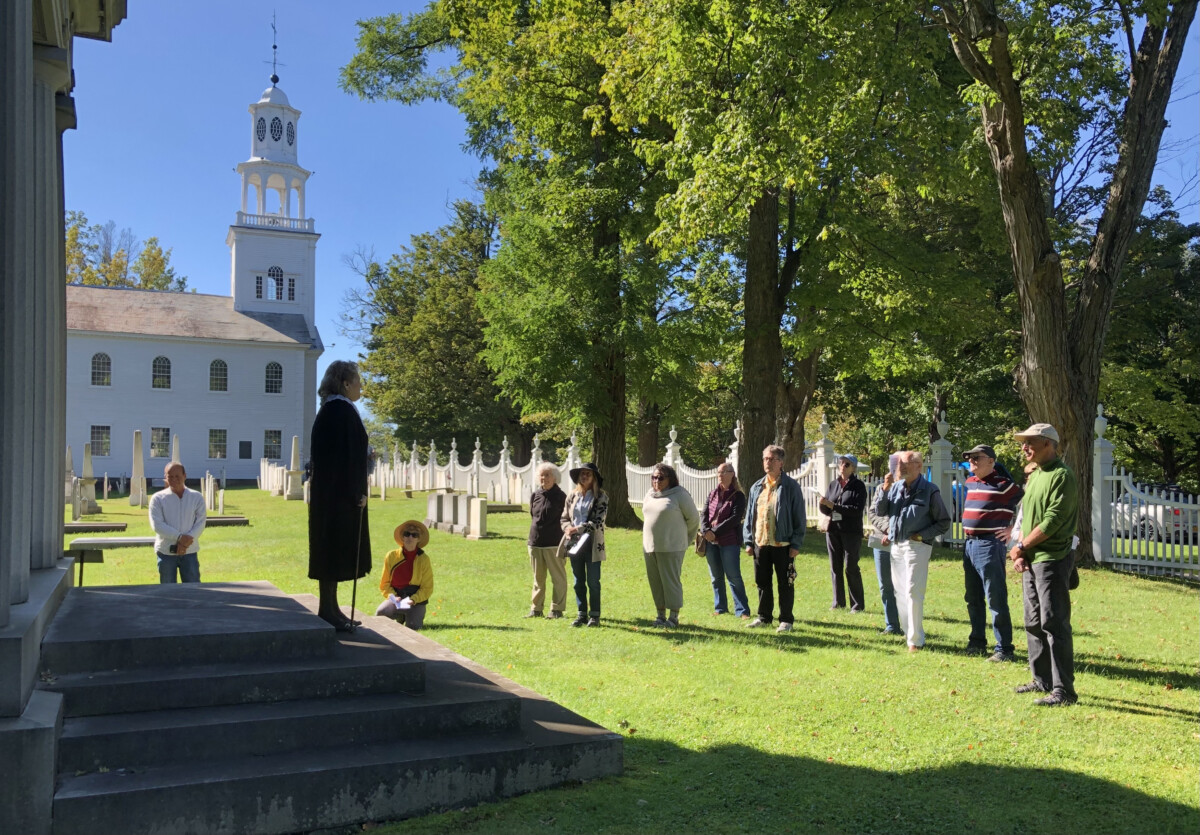These past five months, I mean. I last posted in July, and now that I want to refer someone to my site I had better spruce things up and account for myself. I am a much better promoter of the Town of Bennington, for which I write monthly posts, than of my own business – at which, I’m happy to say, I don’t have to work too hard. Half of what I do is for myself or as a volunteer.
The Town recently gave me the welcome assignment of writing about the Bennington Museum’s current art exhibit and auction. The Berkshire Edge also published my piece, here:
I published a piece in VTDigger and the Edge last month on the Museum’s restored Civil War monument. I’d previously written about it for the Bennington Historical Society newsletter and was one of those who encouraged the Museum to do the restoration.
Before that came “Voices from the Grave,” for which I received primary writing credit. I did most of the work in late winter, but the show went up in late September and early October in situ at the Bennington Centre Cemetery next to the Old First Church in Old Bennington. Twelve actors, in costume and in character, tell circulating groups of a dozen people about their lives in four-minute monologues when the groups gather at their gravesites. Captain Elijah Dewey, David Redding, Mary Sanford, Robert and Elinor Frost – and more – give us the Spoon River treatment. Spoon River introduced me to blank-verse-from-the-dead in high school, and I’ve worked a lot with primary source accounts of the Battle of Bennington, so I took to the writing, in collaboration with our excellent director, Ingrid Madelyne, and members of the BHS. The actors were from the Bennington Community Theater and did a splendid job.
The shows sold out two weekends (of 16 performances) at the cemetery, and two November showings were staged indoors with clever projections of the gravestones. When on the first day of performances the actor who was playing ex-Civil War drummer boy Norman Puffer had a family emergency, I stepped in to play the part (in street clothes). I had written it, and I had a day’s notice to practice, so I knew it pretty well by the time we dead awakened. I recounted witnessing Lincoln’s assassination, among other things. It was lots of fun to act again! The last time I acted was for an English-language Greek movie — which was never, alas, released, victim of “the crisis” (the economic debacle of a decade ago).

I picked up a new book on Vermont history, Vermont’s Ebenezer Allen, by one Glenn Fay, and read it with increasing horror. The book is an offense to the art of history, not to mention the English language. I thought it my duty to warn people, because the cover, from a WPA mural showing Allen reading out an emancipation proclamation to a formerly enslaved captive and her daughter, is quite attractive. Too bad the text of the proclamation printed on the inside is corrupt in so many places. Channeling my inner A. E. Housman, I attacked the book in the BHS newsletter and, more consequentially, I hope, and at greater length on Amazon. Fay attacked me in turn, but just dug his own hole deeper. I doubt you’re interested, but here’s the short version (scroll down past my Civil War memorial piece).
https://benningtonmuseum.org/wp-content/uploads/BHS-Newsletter-August-September-2021-4.pdf
Now I’m editing some of those Battle of Bennington first-person accounts for a grant-funded Battlefield audio project under the auspices of the Friends of the Bennington Battlefield, a volunteer group on whose board I sit. This is a half-volunteer, half-paying job for me, and it will involve my hiring and coaching voice actors. The narrations will be available through QR-code-enabled audio accessed from signage that the Friends put up on the Battlefield (in New York state) two years ago. I got a warm-up for the director’s role at our Veterans Day program for the public at the Battlefield, for which I put together the script.
I almost forgot to mention. I have also been taking first steps toward the Semiquin: Vermont 250th commemoration (2025-2027). I am co-chair of the Education Committee of the Vermont 250th Commission; I’m not a commissioner myself, though my friend and Battle collaborator Jonah Spivak is. My role means that I will play a part in deciding how to teach U.S. history, and Vermont history in particular, in Vermont.
I was looking back through my year’s photographs yesterday. I’ll save those for another post. Here’s one recent landscape, taken from our porch in Pownal.

